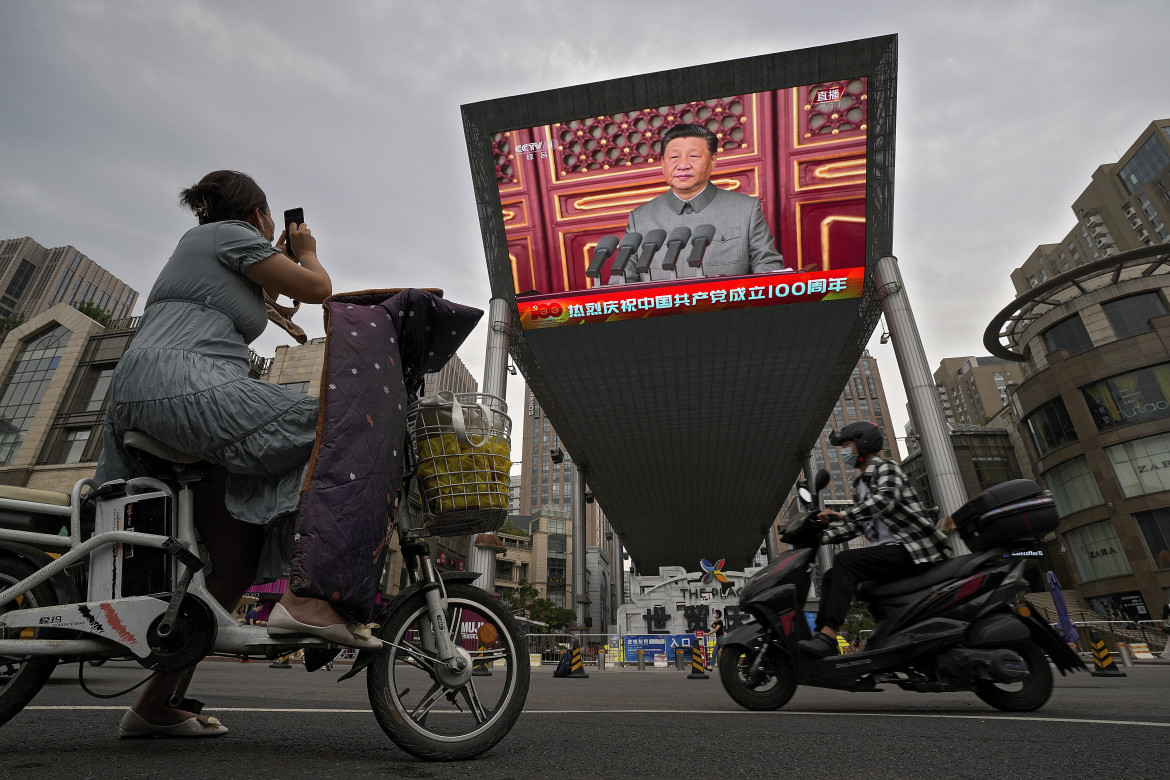Analysis
Economic uncertainty may cost Xi Jinping the middle class
Never has the CCP appeared as separated from the social body as it is today, in particular from the middle class on whose growth the country has long bet.

For once, the Sixth Plenum of the Chinese Communist Party, which concluded Thursday in Beijing, produced what was expected of it: a consecration—if there was still a need for one—of Xi and his path to a third term.
However, outside the secret rooms of the Party, things seem to be proceeding more critically. The CCP has long decided to follow the strategy of the strongman in command—but not alone—perhaps also in order to face the difficult social battles at home.
According to some observers, this process began between 2008 and 2011, when fears of proxy revolutions and the risks involved in facing major choices imposed a distinct path on the Party, with decisive leadership and abrupt methods. Xi was chosen for this new era of the CCP, and he has since demonstrated his ability to fill the role entrusted to him effectively.
According to the sinologist Jeremie Barmé, his reign could be called a “period of transition,” reminiscent of that experienced by the Party in the post-1989 period, up to the push for reforms which began in 1992. The question to ask is: will a 1992 moment ever arrive today?
Because outside the self-celebratory display of the CCP, in Chinese society, almost everything is happening all at once: the real estate giant Evergrande was declared bankrupt the evening before the last day of the Plenum by a German consulting firm (which was later half-retracted); or the editor in chief of the Global Times—the CCP’s ultra-nationalist English-language daily, usually engaged in bitter clashes on social media against the US and the West—posting a comment on Weibo in which he complained about the Party’s interference in the media, opening up a chasm of potential speculation, and in the days of the Plenum no less.
At the same time, the Chinese population seems to be exhausted by Covid policies, worried about the economic trend towards lower growth or a period of scarcity (as pointed out by Damien Ma of the Paulson Institute), frightened by the possibility of having to pay a tax on their house soon, and disoriented by the blows that the Party is dealing right and left, causing loss of work and income.
Never has the CCP appeared as separated from the social body as it is today, in particular from the middle class on whose growth the country has long bet.
People have long speculated on how much Xi Jinping is firmly in command, or whether there may be factions against his leadership, but it seems more likely that the problems for him will not come from the Party, which is in agreement on the choice of an authoritarian hand for potentially delicate times; the problems could come from all those who have been burned by Xi’s policies: entrepreneurs, middle class and low ranking officials whose careers have been hit by the personal choices of Xi Jinping in terms of which allies he chose to trust, including outside the regular channels.
The number of the discontent is multiplying. The CCP usually takes stock of these sentiments, but today it appears almost a prisoner of its own self-analysis and in search of a justification for its predominant role in Chinese society.
Originally published at https://ilmanifesto.it/tasse-e-paura-la-classe-media-si-allontana/ on 2021-11-12
